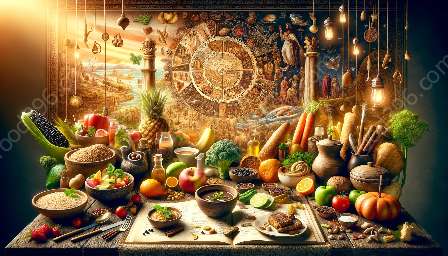Veganism, as a dietary and lifestyle choice, has a rich history shaped by prominent proponents and pioneers who have played a significant role in its development. From ancient philosophers to modern activists, the advocacy for plant-based living has evolved with the changing societal and cultural landscapes. This topic cluster not only delves into the history of veganism but also explores its influence on vegan cuisine and its relationship to broader culinary history.
Proponents and Pioneers of Veganism Throughout History
Throughout different eras and regions, individuals have championed the principles of veganism, advocating for compassion towards animals, ethical eating, and sustainable living. Their contributions have laid the groundwork for the modern vegan movement. Here are some key proponents and pioneers of veganism throughout history:
- Pythagoras (c. 570–495 BCE): An ancient Greek philosopher, Pythagoras promoted a plant-based diet and believed in the interconnectedness of all living beings. His teachings influenced early attitudes towards vegetarianism and ethical eating.
- Louisa Bevington (1845–1895): A British feminist and animal rights advocate, Louisa Bevington emphasized the moral and health benefits of a vegetarian lifestyle while challenging the prevailing attitudes towards animal exploitation in the 19th century.
- Donald Watson (1910–2005): Co-founder of The Vegan Society in 1944, Donald Watson popularized the term 'vegan' and advocated for a lifestyle free from animal products. He played a pivotal role in shaping the modern vegan movement and its ethical foundations.
- Angela Davis (b. 1944): An influential political activist and scholar, Angela Davis has been a vocal advocate for veganism as part of her broader commitment to social justice. She has highlighted the intersectionality of veganism with issues of race, gender, and class.
Vegan Cuisine History
The history of vegan cuisine is intertwined with the evolution of veganism itself. As proponents and pioneers advocated for plant-based living, culinary traditions and practices adapted to accommodate a growing demand for vegan food. Throughout history, various cultures have developed their own vegan culinary traditions, incorporating local ingredients and cooking techniques.
One of the earliest documented vegan cuisines can be found in ancient India, where the concept of ahimsa, or non-violence, influenced the development of vegetarian and vegan dishes. Traditional Indian cooking has given rise to a diverse array of plant-based recipes, showcasing the rich tapestry of flavors and spices.
In the modern era, chefs and food enthusiasts have embraced vegan cuisine, experimenting with innovative ingredients and cooking methods to create an expansive repertoire of plant-based dishes. The availability of vegan alternatives and the evolving culinary landscape have led to the popularization of vegan cooking in mainstream culture.
Cuisine History
The broader history of cuisine encompasses the cultural, social, and economic influences that have shaped the way we approach food and dining. From ancient agricultural practices to the global exchange of culinary traditions, cuisine history offers a multi-faceted view of human interactions with food.
Throughout history, cuisine has evolved in response to environmental factors, technological advancements, and cultural exchanges. The exploration of food and cooking techniques has resulted in a rich tapestry of flavors and culinary traditions that vary across different regions and communities.
Moreover, cuisine history sheds light on the intersection of food with social and historical developments, revealing the ways in which culinary practices have been intertwined with power dynamics, migration patterns, and socio-economic structures.
By examining the proponents and pioneers of veganism throughout history and their impact on vegan cuisine, we gain insights into broader culinary narratives and the evolving relationship between human beings and their food choices. The interconnectedness of these topics underscores the dynamic nature of food culture and its enduring influence on our lives.

